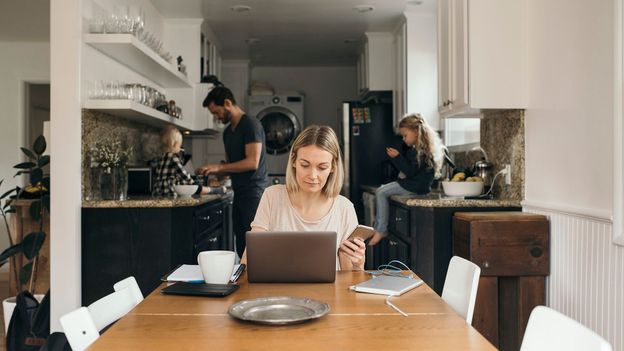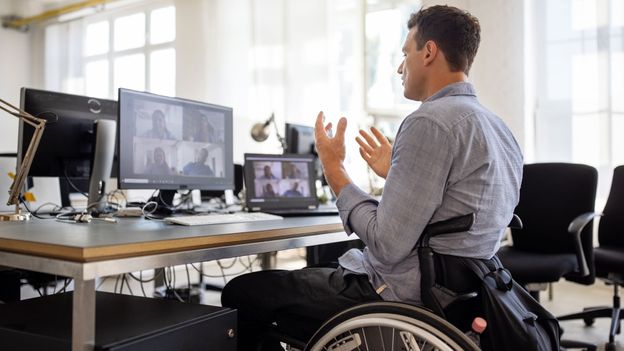But experts say that regardless of whether working from bed is avoidable or not, the ergonomic advice is the same: it’s not good for your body, so it’s very important to vary your posture and support different parts of your body wherever possible.
Your neck, back, hips and more are all strained when you’re on a soft surface that encourages you to slump or sprawl. “None of it is optimal,” says Susan Hallbeck, director of health-care-system engineering at the Mayo Clinic, one of the largest medical research institutions in the US. “You’re really not supported in a way that’s conducive to work.”
Young people, she points out, are particularly likely to fall victim to these bad habits, because they may not feel the strain of them right away. But the pain will flare up down the road. And depending on how bad your habits have been over this last year, the damage may already be done. It depends on the person, but it may be too late to undo the ergonomic problems you’ll face when you get older.
These ailments could include simple headaches, and could also extend to permanent stiffness in your back, arthritis and what’s known as cervical pain – that’s pain in the bones, ligaments and muscles in your neck that allow motion. “Anything is better than continuing the bad habit. Whenever you can stop, stop,” says Hallbeck.
If you must continue working from bed (“there are grades of bad,” says Hallbeck), try recreating the experience of sitting in an upright chair as much as you can, and aim for “neutral posture” – that is, avoid putting strain on any one part of your body.
Roll up a pillow and stick it under your lower back for lumbar support, put pillows under your knees, try to separate the display from your keyboard (if you’re able) and put the display at eye level or higher. Whatever you do, avoid lying on your stomach to type; it really strains your neck and elbows.
When in doubt, get creative, like using an ironing board as a makeshift standing desk. But if you possibly can, it’s worth splashing out on some comfort. “If you’re going to be working from home for a long time” – and most experts predict that we will – “it really does pay to invest in a good workstation, even if it’s a very small workstation,” adds Hallbeck.
Breaking your brain
When you work from bed for a year, it doesn’t just potentially wreck your body. It’s possibly bad for your productivity and sleep habits, too.
“As sleep specialists, we tend to recommend that the bed should be for the three Ss: sleeping, for sex or for when you’re sick. That’s it,” says Rachel Salas, associate professor of neurology and sleep expert at Johns Hopkins University in Maryland.
“The more you watch TV in bed, play video games in bed and not sleep in bed, your brain starts learning, ‘oh, OK, we can do any one of these activities in bed’. It starts building these associations, which eventually evolve into conditioned behaviours.”













